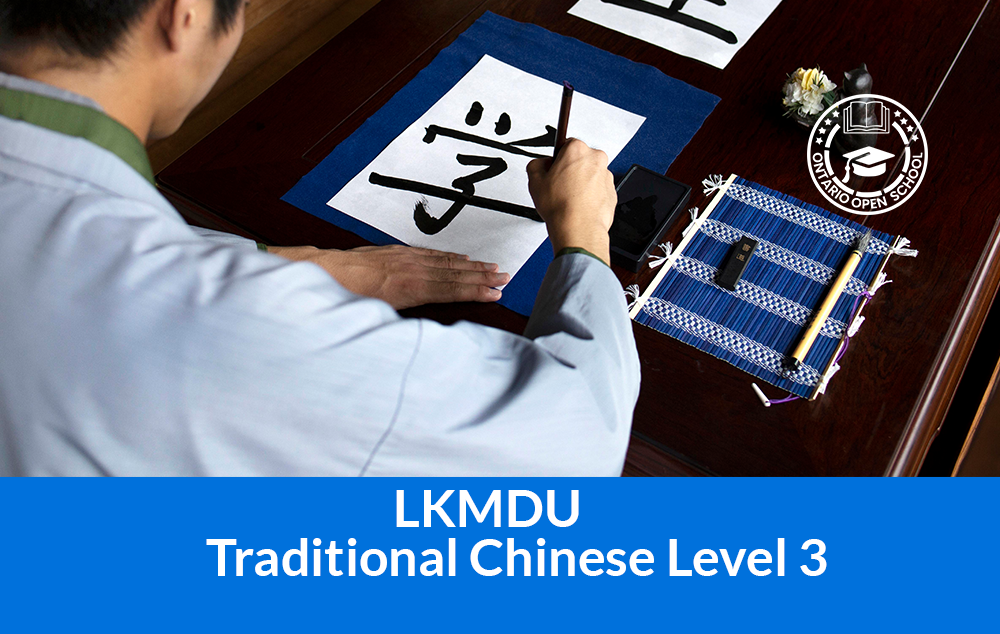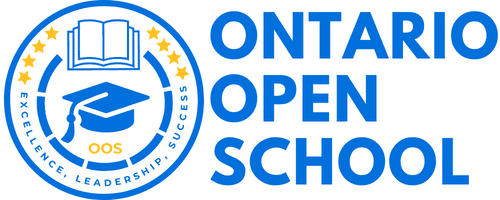- info@ontarioopenschool.com
- 647-494-4499
-
Unit 100 - 29 Gervais Drive, North York, ON.
M3C 1Y9
Copyright 2024 Ontario Open School Inc. All Rights Reserved.
This course provides extended opportunities for students to communicate and interact in the language of study in a variety of social and academic contexts. Students will re ne and enhance their listening, speaking, reading, and writing skills, as well as their creative and critical thinking skills, as they explore and respond to a variety of oral and written texts, including complex authentic and adapted texts. They will also broaden their understanding and appreciation of diverse communities where the language is spoken and develop skills necessary for lifelong language learning.
Unit Order | Unit Name | Suggested Time |
|---|---|---|
| Unit 1 | Oral Communication Students will discuss love in different cultures through literature review and case studies. They will learn about the Chinese culture through the theme of Women in China and career choice in new China. Ancient Chinese Mythology, classical Chinese poetry, Chinese calligraphy are studies. | 25 hours |
| Unit 2 | Short Story/ Novel Study Students will learn many customs and traditions associated with the festivals in China, especially the Chinese New Year. They will be introduced to the most famous writer in the history of modem China – Lu Xun and his short stories, such as “Kong Yiji”, as well as famous short stories by Ba Jin and Lao She. They will be introduced to shopping in which they will learn to deal with the “haggling” culture. They will also study traditional Chinese festivals and classical Chinese fictions | 25 hours |
| Unit 3 | Media Awareness Students will do a case study of the Market Development Department in a Chinese Canadian joint venture corporation. Through this, they will learn about job search and career choices and development in the Chinese market, and the youth generation in today’s China. They will also discuss the generation gap between parents and children on issues concerning school, the educational system and social expectations. They will learn about the cultural roots and traditions, such as the Confucius, the Silk Road, and the Chinese dragon. | 25 hours |
| Unit 4 | Application of Mandarin Students will be introduced to China and its language through selected films and Power-point presentation. They will choose one of the fastest developed cities and conduct an in-depth in research as an independent project. A variety of oral and written assignments will allow them to use what they have acquired in class | 25 hours |
| Final Evaluation 30% | Culminating Assignment Final Exam | 8 hours 2 hours |
| Total | 110 hours |
A wide variety of instructional strategies are used to provide learning opportunities to accommodate a variety of learning styles, interests and ability levels. These strategies include but are not limited to:
| · Lecture | · Research Project |
| · Reading | · Independent Study |
| · Structured Discussion | · Watching Persian movies followed by group discussions about the movies. |
| · Case Study | · Story telling |
| · Presentation |
Purpose
The primary purpose of assessment is to improve student learning. Assessment relates directly to the expectations for the course.
A variety of assessments for and as learning are conducted on a regular basis to allow ample opportunities for students to improve and ultimately demonstrate their full range of learning and for the teacher to gather information to provide feedback. Assessment tasks relate to the success criteria set out in lesson plans. Success criteria allow students to see what quality looks like.
Evaluation is the process of judging the quality of student work in relation to the achievement chart categories and criteria and assigning a percentage grade to represent that quality. Evaluation is based on gathering evidence of student achievement through:
Assessment for Learning – we provide feedback and coaching. Assessment FOR Learning is the process of seeking and interpreting evidence for the use of learners and their teachers to decide where the learners are in their learning, where they need to go, and how best to go there.
Assessment as Learning – we help students monitor progress, set goals, reflect on their learning
Assessment AS Learning is the process of the explicit fostering of students’ capacity over time to be their own best assessors, but teachers need to start by presenting and modeling external, structured opportunities for students to assess themselves.
Assessment of Learning – we use assessments to provide evaluative statements about student achievement. Assessment OF Learning is the assessment that becomes public and results in statements of symbols
(marks/grades/levels of achievement) about how well students are learning. It often contributes to pivotal decisions that will affect students’ future.
ASSESSMENT TOOLS
|
|
Units | Duration | Overall Expectations | AFL | AAL | AOL | K
25% |
A
25% |
C
25% |
T 25% |
|
|
70% |
A | 26 | A1-A3 | Student-Teacher Conferencing | Peer Assessment | Poster Presentation | √ | √ | √ | √ | |
| B | 26 | B1-B3 | Worksheet
Class Discussion |
KWL Chart | Unit Test
Class Discussion |
√ | √ | √ | √ | ||
| C | 30 | C1-C3 | Worksheet
Pair Discussion |
Learning Log |
Unit Test Written Assignment |
√ | √ | √ |
√ |
||
|
D |
28 | D1-D3 | Homework
Student – Teacher Conferencing |
Reflective Discussion | Unit Test
Portfolio Assignment |
√ | √ | √ |
√ |
||
|
30% |
A1-D3 | Final Exam 30% (Written Component) |
√ |
√ |
√ |
√
|
|||||
Resources
Grading
Weighting of categories
| Knowledge/Understanding | Thinking/Inquiry | Communication | Application |
| 25% | 25% | 25% | 25% |

Course Grade | Grade 12 |
|---|---|
Course Code | LKMDU |
Course Category | Classical Studies and International Languages |
Course Type | University Preparation |
Course Delivery | Online |
Course Duration | 110h |
Course Credit | 1.00 |
Copyright 2024 Ontario Open School Inc. All Rights Reserved.
